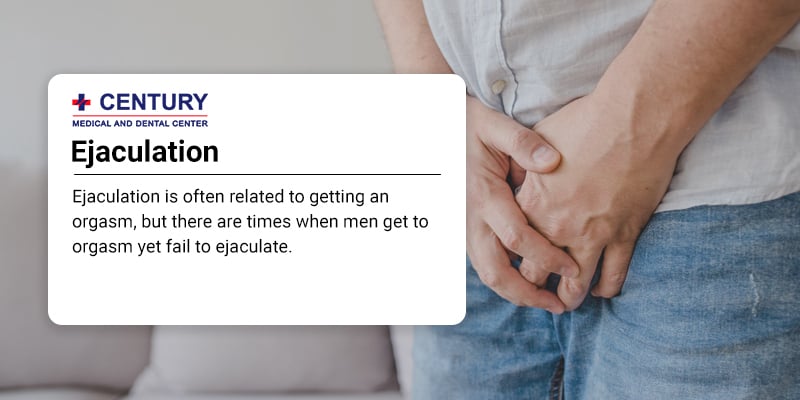What Medications Can Treat Premature Ejaculation? A Doctor’s Advice

The Role of Medications in Treating Premature Ejaculation

Premature ejaculation is a common sexual dysfunction that affects many men worldwide. While there are various treatment approaches available, medications play a crucial role in managing this condition. Medications for premature ejaculation are designed to enhance control over ejaculation, delay climax, and ultimately improve sexual satisfaction and performance.
One commonly prescribed class of medications for premature ejaculation is the selective serotonin reuptake inhibitors (SSRIs). SSRIs work by increasing the levels of serotonin in the brain, which helps to regulate ejaculation. Clinical studies have shown that SSRIs can significantly increase the time to ejaculation and improve overall sexual satisfaction. Commonly used SSRIs include sertraline, fluoxetine, and paroxetine. However, it’s important to note that these medications may take several weeks to reach their full effect and may have potential side effects, which should be discussed with a healthcare professional.
Another class of medications that may be considered for premature ejaculation is tricyclic antidepressants (TCAs). Like SSRIs, TCAs also work by increasing serotonin levels in the brain. However, TCAs are less commonly used for this purpose due to their potential side effects, such as drowsiness and dry mouth. Nonetheless, some studies have shown that TCAs can be effective in prolonging ejaculation time and improving sexual function.
Please note that the information provided here is for informational purposes only and should not replace professional medical advice. It’s important to consult with a healthcare professional to determine the most appropriate medication and treatment plan for your specific situation.
1. Selective Serotonin Reuptake Inhibitors (SSRIs): An Effective Treatment Option
Selective Serotonin Reuptake Inhibitors (SSRIs) have emerged as an effective treatment option for premature ejaculation (PE). These medications, commonly used to treat depression and anxiety, have shown promising results in delaying ejaculation and improving sexual satisfaction in men with PE.
SSRIs work by increasing the levels of serotonin, a neurotransmitter in the brain that regulates mood and emotions. By inhibiting the reuptake of serotonin, SSRIs help to alleviate the symptoms of PE. Several clinical trials have demonstrated the efficacy of SSRIs in prolonging ejaculation time and improving ejaculatory control. One study found that men taking SSRIs had a three-fold increase in ejaculatory latency time compared to those on a placebo.
Additionally, SSRIs have been found to improve overall sexual function and decrease distress related to PE. It is important to note that SSRIs are not specifically approved by regulatory authorities for the treatment of PE, but they are frequently prescribed off-label due to their demonstrated efficacy. Commonly prescribed SSRIs for PE include fluoxetine, paroxetine, and sertraline.
While SSRIs can be effective in treating PE, it is essential to consider potential side effects and individual response to the medication. Some common side effects of SSRIs include nausea, dizziness, and fatigue. It is recommended to consult with a healthcare professional to determine the appropriate dosage and administration of SSRIs for PE treatment.
Further research and studies are needed to better understand the long-term effects and optimal use of SSRIs in treating PE. Combination therapy, where SSRIs are used in conjunction with other treatment modalities, may also be considered to enhance treatment efficacy.
In conclusion, SSRIs have shown promise in the treatment of premature ejaculation. Their ability to delay ejaculation and improve ejaculatory control has been documented in numerous clinical trials. However, it is important to weigh the potential side effects and individual response when considering SSRIs as a treatment option for PE. Consulting with a healthcare professional can help determine the most appropriate course of treatment.
2. Tricyclic Antidepressants (TCAs): Another Medication for Premature Ejaculation
Tricyclic antidepressants (TCAs) are medications commonly used to treat depression, but they have also shown promise in managing premature ejaculation. These medications work by affecting the levels of certain chemicals in the brain, such as serotonin and norepinephrine, which play a role in ejaculation control.
One TCA that has been studied for its efficacy in treating premature ejaculation is clomipramine. Clomipramine is believed to increase the time it takes to ejaculate by influencing the serotonin system in the brain. In a clinical study conducted on men with premature ejaculation, clomipramine was found to significantly increase intravaginal ejaculatory latency time, allowing for better control over ejaculation.
While TCAs can be effective in managing premature ejaculation, it’s important to note that they may also come with potential side effects. These can range from dry mouth and drowsiness to more serious concerns like changes in heart rhythm or sexual dysfunction. As with any medication, it’s crucial to consult with a healthcare professional who can assess your individual needs and determine the most appropriate treatment plan.
• Tricyclic antidepressants (TCAs) are commonly used to treat depression but have shown promise in managing premature ejaculation.
• TCAs work by affecting the levels of certain chemicals in the brain, such as serotonin and norepinephrine, which play a role in ejaculation control.
• Clomipramine is a TCA that has been studied for its efficacy in treating premature ejaculation.
• Clomipramine is believed to increase the time it takes to ejaculate by influencing the serotonin system in the brain.
• In a clinical study conducted on men with premature ejaculation, clomipramine was found to significantly increase intravaginal ejaculatory latency time, allowing for better control over ejaculation.
• It’s important to note that TCAs may come with potential side effects ranging from dry mouth and drowsiness to more serious concerns like changes in heart rhythm or sexual dysfunction.
• Consultation with a healthcare professional is crucial to assess individual needs and determine an appropriate treatment plan.
3. Phosphodiesterase-5 (PDE-5) Inhibitors: A Promising Choice for Some Patients
Phosphodiesterase-5 (PDE-5) inhibitors are a class of medications that have shown promise in the treatment of premature ejaculation (PE) in certain patients. These drugs, such as sildenafil (Viagra), tadalafil (Cialis), and vardenafil (Levitra), were originally developed to treat erectile dysfunction, but their benefits for PE have also been explored.
PDE-5 inhibitors work by enhancing the effects of nitric oxide, a chemical that relaxes the muscles in the penis and allows increased blood flow, leading to better erections. In the context of PE, these medications have the potential to delay ejaculation by improving control over ejaculation and increasing the time to climax.
Clinical studies have found that PDE-5 inhibitors can significantly improve ejaculatory control and increase the intravaginal ejaculatory latency time (IELT), which is the time from the start of vaginal penetration to ejaculation. However, it is important to note that these drugs may not be effective for all patients with PE. Individual response and variability in the underlying causes of PE may influence the effectiveness of PDE-5 inhibitors. Therefore, it is crucial for patients to consult with a healthcare professional to determine if this class of medications is suitable for their specific case of PE.
4. Topical Anesthetics: How They Can Help Delay Ejaculation
Topical anesthetics have been found to be a useful treatment option for men with premature ejaculation. These medications work by reducing the sensitivity of the penis, thereby delaying ejaculation. One commonly used topical anesthetic is lidocaine, which is available in various forms such as sprays, creams, and gels.
When applied to the penis, lidocaine desensitizes the nerve endings, allowing men to have more control over their ejaculation. It is important to note that lidocaine should be applied in moderation, following the dosage and application guidelines provided by a healthcare professional. Overuse of topical anesthetics can lead to numbing of the penis, affecting sexual sensation and pleasure.
Research studies have shown promising results for the use of lidocaine as a topical treatment for premature ejaculation. For example, a systematic review and meta-analysis published in the Journal of Sexual Medicine found that lidocaine spray significantly increased the intravaginal ejaculation latency time (IELT) and improved sexual satisfaction compared to a placebo. Another study published in the International Journal of Urology reported similar findings, demonstrating the efficacy of lidocaine gel in delaying ejaculation.
Overall, topical anesthetics can be a valuable tool in the management of premature ejaculation. However, it is important to consult with a healthcare professional to determine the appropriate use and dosage based on individual needs and preferences.
5. Dapoxetine: A Specific Medication for Premature Ejaculation
Dapoxetine, a selective serotonin reuptake inhibitor (SSRI), has emerged as a specific medication for the treatment of premature ejaculation. Unlike other SSRIs that are primarily used for mood disorders, dapoxetine is specifically designed to target and delay ejaculation.
Clinical studies have shown that dapoxetine can effectively increase the time to ejaculation and improve control over ejaculation in men with premature ejaculation. It works by increasing the levels of serotonin in the brain, which in turn helps to regulate the timing of ejaculation. Dapoxetine is typically taken on an as-needed basis, approximately 1 to 3 hours before sexual activity, and its effects can last for up to 12 hours.
It is important to note that dapoxetine is a prescription medication and should be used under the guidance of a healthcare professional. Before starting dapoxetine, it is recommended to consult with a doctor to discuss the potential benefits and risks. Dapoxetine may not be suitable for everyone, and potential side effects and contraindications should be considered. Overall, dapoxetine offers a targeted and effective approach to managing premature ejaculation, providing men with a viable treatment option to improve their sexual health and satisfaction.
6. Off-Label Medications: Unconventional Approaches Worth Discussing
Off-label medications refer to the use of an approved medication for a purpose other than what it was originally intended for. In the case of premature ejaculation, there are a few off-label medications worth discussing. One such medication is tramadol, a centrally acting analgesic that has shown promise in delaying ejaculation. Studies have found that tramadol can significantly increase the intravaginal ejaculation latency time and improve sexual satisfaction in men with premature ejaculation. However, it is important to note that tramadol may have side effects such as nausea, dizziness, and constipation, and should only be used under medical supervision.
Another off-label medication that has gained attention for its potential in treating premature ejaculation is modafinil. Originally used to treat sleep disorders, modafinil is a central nervous system stimulant that has shown beneficial effects in delaying ejaculation. Its mechanism of action in premature ejaculation is not completely understood, but it is believed to modulate the release of certain neurotransmitters in the brain. While modafinil may offer promise as an off-label treatment, more research is needed to fully understand its efficacy and safety in treating premature ejaculation. It is important to consult with a healthcare professional before considering off-label medications to ensure their suitability and safety for individual use.
7. Combining Medications: Enhancing Treatment Efficacy
When it comes to treating premature ejaculation, combining medications can be a viable option for enhancing treatment efficacy. By using a combination of different medications, healthcare professionals can target multiple underlying causes of the condition, ultimately improving the overall success rate of treatment.
One common approach is to combine selective serotonin reuptake inhibitors (SSRIs) with topical anesthetics. SSRIs, such as paroxetine or sertraline, are known to increase serotonin levels in the brain, which can help delay ejaculation. Topical anesthetics, on the other hand, can provide a numbing effect to reduce sensitivity and prolong intercourse. By combining these two types of medications, both the psychological and physical aspects of premature ejaculation can be addressed simultaneously.
Another potential combination involves the use of tricyclic antidepressants (TCAs) along with phosphodiesterase-5 (PDE-5) inhibitors. TCAs, such as clomipramine, have been found to have a similar delay effect on ejaculation as SSRIs. PDE-5 inhibitors, commonly used to treat erectile dysfunction, can also help improve ejaculation control in some cases. By combining these medications, healthcare professionals can target both the psychological and physiological factors contributing to premature ejaculation.
While combining medications may enhance treatment efficacy, it is crucial to consult with a healthcare professional before starting any combination therapy. They can assess the individual’s specific situation and determine the most suitable combination of medications based on factors such as medical history, current medications, and potential side effects. Additionally, they can monitor the individual’s progress and adjust the treatment plan accordingly. With careful consideration and professional guidance, combining medications can be an effective strategy for managing premature ejaculation.
8. Potential Side Effects and Risks of Medications for Premature Ejaculation
When considering medications for the treatment of premature ejaculation, it is important to be aware of the potential side effects and risks that may arise. While these medications can be highly effective in improving sexual function and delaying ejaculation, it is crucial to weigh the benefits against the possible drawbacks.
One common side effect associated with selective serotonin reuptake inhibitors (SSRIs), a class of medications commonly used in the treatment of premature ejaculation, is sexual dysfunction. This may manifest as a decrease in libido, difficulty achieving orgasm, or erectile dysfunction. It is important to note that these side effects are not experienced by all individuals, and the severity can vary. Additionally, other potential side effects may include nausea, headaches, dizziness, or insomnia. As with any medication, it is recommended to consult with a healthcare professional to discuss potential risks and determine if the benefits outweigh the potential side effects.
In addition to SSRIs, tricyclic antidepressants (TCAs) are another class of medications that have shown efficacy in treating premature ejaculation. However, TCAs are associated with a range of potential side effects including drowsiness, dizziness, dry mouth, blurred vision, and constipation. Furthermore, TCAs may interact with other medications or medical conditions, so it is important to disclose one’s complete medical history to the healthcare professional in order to evaluate the appropriateness of this treatment option.
As with any medication, it is important to carefully consider the potential side effects and risks before initiating treatment for premature ejaculation. A thorough discussion with a healthcare professional is crucial in order to make an informed decision and determine the most suitable treatment approach based on an individual’s specific circumstances. While medications can offer significant benefits in improving sexual function, it is essential to have a comprehensive understanding of the potential risks involved.
9. Dosage and Administration Guidelines: What to Know
When it comes to the dosage and administration of medications for treating premature ejaculation, it is crucial to follow the guidelines provided by healthcare professionals. The specific dosage and frequency of medication may vary depending on the type of medication prescribed and the severity of the condition. It is important to understand that these medications should only be taken under medical supervision to ensure safety and effectiveness.
For medications like selective serotonin reuptake inhibitors (SSRIs) and tricyclic antidepressants (TCAs), the initial dosage is often low and gradually increased based on individual response and tolerability. It is common for patients to start with a low dose and then gradually work up to a therapeutic dose that effectively helps to delay ejaculation. This gradual increase in dosage allows the body to adjust to the medication and reduces the likelihood of experiencing any significant side effects. Regular follow-up visits with healthcare professionals are important to monitor progress, adjust dosage if necessary, and address any concerns or side effects that may arise.
10. Medical Consultation: The First Step Towards Finding the Right Medication
The importance of seeking medical consultation cannot be overstated when it comes to finding the right medication for premature ejaculation. A knowledgeable healthcare professional, such as a urologist or sex therapist, can thoroughly evaluate a patient’s medical history, symptoms, and sexual health to determine the most appropriate course of treatment.
During the initial consultation, the healthcare provider will likely ask numerous questions to gather information about the patient’s sexual history, relationships, and overall health. They may inquire about the frequency and duration of premature ejaculation episodes, any potential triggers or underlying psychological factors, and the impact it has on the patient’s quality of life. Additionally, the doctor may perform a physical examination to rule out any underlying medical conditions that may contribute to premature ejaculation.
Based on the information collected, the healthcare provider will be able to recommend a suitable treatment plan. This may involve the use of medications, such as selective serotonin reuptake inhibitors (SSRIs), tricyclic antidepressants (TCAs), phosphodiesterase-5 (PDE-5) inhibitors, topical anesthetics, or dapoxetine. Alternatively, they may suggest lifestyle modifications, counseling, or behavioral therapy as complementary strategies. Ultimately, the ultimate goal is to find the most effective and individualized treatment approach for each patient.
11. Lifestyle Modifications: Complementary Strategies for Managing Premature Ejaculation
There are several lifestyle modifications that can be complementary strategies for managing premature ejaculation. These modifications focus on adopting healthy habits and making certain changes in daily routines. For example, engaging in regular exercise can be beneficial, as it helps to improve overall physical fitness and reduce stress levels. Stress is known to contribute to premature ejaculation, so finding effective ways to manage and reduce stress can be helpful. Techniques such as deep breathing exercises, meditation, and yoga have been found to be effective in managing stress and promoting relaxation.
Another important aspect of managing premature ejaculation includes making dietary changes. Certain nutrients have been found to have a positive impact on sexual health and function. Incorporating a balanced diet that includes foods rich in vitamins, minerals, and antioxidants can help promote overall sexual well-being. Some specific foods that have been studied for their potential benefits in managing premature ejaculation include walnuts, asparagus, and dark chocolate.
A holistic approach that combines lifestyle modifications with medical treatments can provide the most comprehensive management of premature ejaculation. By adopting healthy habits and making necessary adjustments to daily routines, individuals can effectively manage and improve their sexual well-being.
12. Counseling and Behavioral Therapy: Supplementing Medication Treatment
Counseling and behavioral therapy play a significant role in supplementing medication treatment for premature ejaculation. While medications can be effective in managing the physical aspects of the condition, addressing the psychological and emotional factors through therapy can enhance treatment efficacy.
Cognitive-behavioral therapy (CBT) is commonly used in conjunction with medication for premature ejaculation. This type of therapy aims to identify and modify negative thought patterns and behaviors that contribute to the issue. Through CBT, individuals can learn techniques to manage anxiety, develop better communication skills, and improve their overall sexual confidence.
Another type of therapy often utilized is the stop-start technique, which involves the individual and their partner practicing controlled stimulation followed by pauses to delay ejaculation. This technique helps increase awareness of arousal levels and allows individuals to gain better control over their ejaculatory response. Couples may also benefit from counseling to address any relationship issues that could be impacting sexual functioning.
Incorporating counseling and behavioral therapy alongside medication treatment offers a comprehensive approach to managing premature ejaculation. By addressing both the physical and psychological aspects of the condition, individuals can work towards improving their sexual well-being and overall quality of life.
13. Alternative Treatment Appro
Alternative treatments for premature ejaculation refer to non-medication approaches that may be considered by individuals who prefer to explore options outside of conventional medical treatments. While there is limited scientific evidence to support the efficacy of alternative treatments, some studies have suggested potential benefits in certain cases.
One alternative treatment that has gained some attention is acupuncture. In traditional Chinese medicine, acupuncture is believed to restore the balance of energy in the body. Some studies have shown that acupuncture may help improve premature ejaculation symptoms by enhancing the release of neurotransmitters involved in sexual function. However, more research is needed to fully understand the effects of acupuncture on premature ejaculation and to identify optimal treatment protocols.
Another alternative treatment that has been explored is the use of herbal supplements. Traditional herbal remedies like ashwagandha, ginseng, and Tribulus terrestris have been touted for their potential benefits in male sexual health. These supplements are believed to have aphrodisiac properties and may help improve sexual performance. However, it is important to note that evidence supporting their effectiveness in treating premature ejaculation is limited, and the quality and safety of herbal supplements can vary greatly. Therefore, it is advisable to consult with a healthcare professional before considering the use of herbal supplements for premature ejaculation.
What role do medications play in treating premature ejaculation?
Medications can be an effective treatment option for managing premature ejaculation.
What are Selective Serotonin Reuptake Inhibitors (SSRIs) and how do they help treat premature ejaculation?
SSRIs are a type of medication that can be used to treat premature ejaculation by increasing serotonin levels in the brain, which helps to delay ejaculation.
Are Tricyclic Antidepressants (TCAs) also used to treat premature ejaculation?
Yes, TCAs are another type of medication that can be prescribed to treat premature ejaculation.
How do Phosphodiesterase-5 (PDE-5) Inhibitors help with premature ejaculation?
PDE-5 inhibitors are medications that are primarily used to treat erectile dysfunction but may also be helpful in managing premature ejaculation in some patients.
What are topical anesthetics and how can they help delay ejaculation?
Topical anesthetics are numbing agents that can be applied to the penis to reduce sensitivity and help delay ejaculation.
Is Dapoxetine a specific medication for premature ejaculation?
Yes, Dapoxetine is a specific medication that has been approved for the treatment of premature ejaculation.
Are there any unconventional off-label medications that can be used to treat premature ejaculation?
Yes, there are some off-label medications that may be considered as unconventional approaches for managing premature ejaculation.
Can combining medications enhance the efficacy of premature ejaculation treatment?
Yes, combining different medications may be an option to enhance the effectiveness of treatment for premature ejaculation.
What are the potential side effects and risks associated with medications for premature ejaculation?
Like any medication, there can be potential side effects and risks associated with the use of medications for premature ejaculation. It is important to discuss these with a healthcare professional.
Are there any specific dosage and administration guidelines for medications used in treating premature ejaculation?
Yes, there are specific dosage and administration guidelines that should be followed when using medications for premature ejaculation.
Why is medical consultation important when considering medication for premature ejaculation treatment?
Medical consultation is important because a healthcare professional can evaluate your specific condition and medical history to determine the most appropriate medication and dosage for your individual needs.
Are there any complementary lifestyle modifications that can help manage premature ejaculation?
Yes, there are lifestyle modifications that can be implemented alongside medication treatment to help manage premature ejaculation.
How can counseling and behavioral therapy supplement medication treatment for premature ejaculation?
Counseling and behavioral therapy can help address any underlying psychological factors contributing to premature ejaculation and can supplement the effects of medication treatment.
What alternative treatment approaches are available for managing premature ejaculation?
The article discusses various alternative treatment approaches for managing premature ejaculation, which may include natural remedies, exercises, or other non-medication options.





